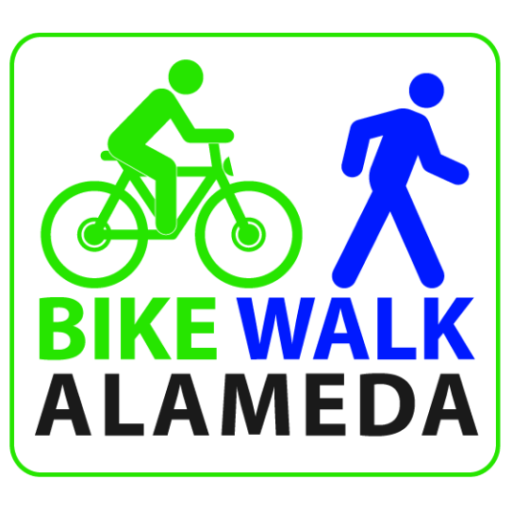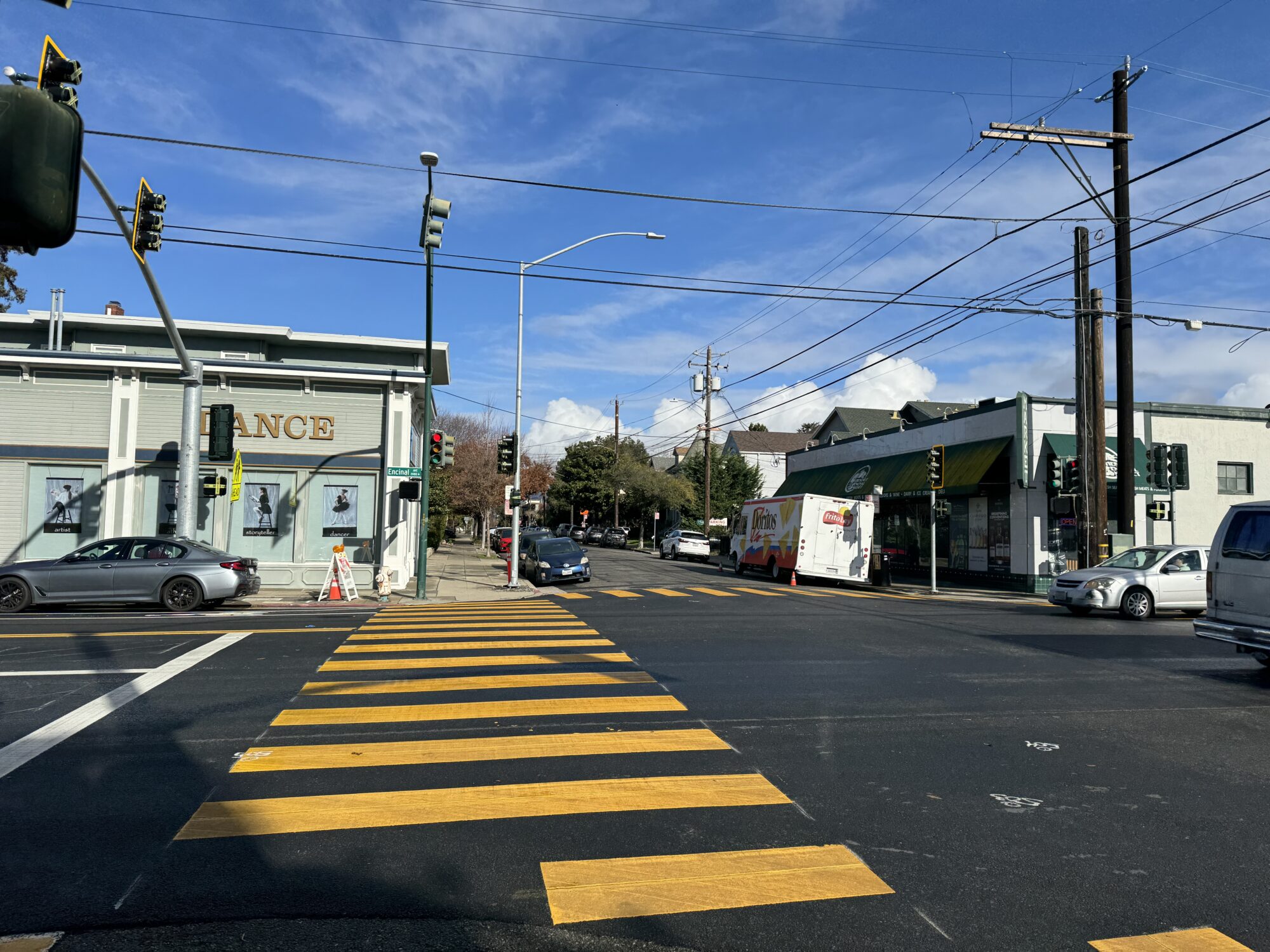We’re giving a warm welcome to 2024, and all the new legislation that has come into effect with it. Below are some highlights of bills that we’re especially excited about.
AB-1909 Vehicles: bicycle omnibus bill.
Passed in 2022, and going into effect this year, this bill allows bicyclists to cross a street when a pedestrian signal is activated, unless otherwise directed by a bicycle control signal. It includes other provisions, too, such as a prohibition for jurisdictions (like ours, incidentally) from requiring bicycles to be licensed.
AB-2264 Pedestrian crossing signals (LPIs).
Another law passed in 2022, but going into effect this year, this bill requires state-owned traffic signals to be programmed differently when they are installed or updated. A “leading pedestrian interval” (LPI) of 3 to 7 seconds before motorists get a green light is required. This lead time improves safety by increasing drivers’ visibility of pedestrians. In conjunction with AB-1909, this lead time will also improve safety for bicyclists.
Bills passed in the 2023 legislative session include:
AB-413 Vehicles: stopping, standing, and parking (daylighting).
Prohibits vehicles (except bikes and motorized scooters) from stopping, standing, or parking within 20 feet of the approach to unmarked or marked crosswalks. This year, jurisdictions are only authorized to give warnings in most cases, but next year, citations will be authorized.
AB-361 Vehicles: photographs of bicycle lane parking violations.
Authorizes local agencies to install cameras on city-owned or district-owned parking enforcement vehicles for the purpose of taking photographs of parking violations occurring in bicycle lanes.
AB-645 Vehicles: speed safety system pilot program.
Authorizes a few cities, including Oakland and San Francisco, to pilot camera-based speed safety programs.
SB-712 Tenancy: personal micromobility devices.
Prohibits a landlord from prohibiting a tenant from owning personal micromobility devices or from storing and recharging up to one personal micromobility device in their dwelling unit for each person occupying the unit, subject to certain conditions and exceptions.

